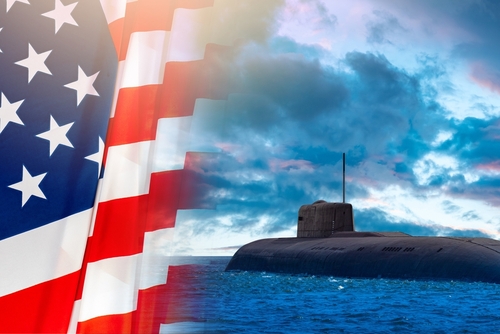
In a recent development that has escalated concerns over maritime security, an American warship, along with several vessels, has been targeted in an attack in the strategic waters of the Red Sea. The incident, which was reported by the Pentagon, has sent ripples through the international community, prompting urgent discussions on the safety of naval operations in the region.
The Red Sea, a critical maritime route for both commercial and military ships, has long been a flashpoint due to its geopolitical significance. The attack on the U.S. warship signifies a bold move by aggressors, challenging the presence and authority of American naval power in these contested waters. The Pentagon’s report detailed the circumstances of the attack but withheld specific information on the origin of the assault or the extent of the damage incurred.
An #American warship and multiple commercial ships have been attacked in the #RedSea. pic.twitter.com/YmiRMRQHKn
— Uncut Version International (@uncutversion123) December 4, 2023
In response to the attack, the United States Navy has heightened its security protocols and is currently coordinating with allied forces to ensure the protection of its fleet. This incident has underscored the volatile nature of the region and the constant threat faced by naval vessels operating near conflict-prone zones. The U.S. government has called for an immediate investigation into the attack, emphasizing the need for a collective effort to maintain freedom of navigation and uphold international maritime law.
The Pentagon’s announcement has also sparked a debate on the adequacy of current defense measures and the necessity for advanced technology to detect and deter such threats. Military analysts are scrutinizing the implications of the attack on future U.S. naval strategies and the potential for increased militarization of the area. The incident serves as a stark reminder of the persistent risks and challenges that come with maintaining a global naval presence.
#BREAKING — The USS Carney, an American warship, was bombarded with missiles and drones in the Red Sea Sunday.
Read the full story here: https://t.co/VqtuVSVt6W pic.twitter.com/NvkfpERyBi
— TMZ (@TMZ) December 4, 2023
As the situation unfolds, the international community watches closely, with many nations expressing solidarity with the United States and condemning any acts of aggression against peaceful vessels. The United Nations has been urged to take a firm stance on the issue, promoting diplomatic efforts to resolve tensions and prevent further escalation.
The attack on the American warship in the Red Sea is not an isolated event; it reflects a broader pattern of maritime insecurity that affects numerous countries and industries. The shipping lanes in this region are vital for the transport of oil, goods, and resources, making them a target for piracy and state-sponsored aggression. Ensuring the safety of these waterways is paramount for global trade and economic stability.
In light of the recent attack, the U.S. Navy is reviewing its operational tactics and considering an increase in patrols and surveillance. The goal is to deter hostile actions and provide a secure environment for the uninterrupted flow of commerce and navigation. The commitment to safeguarding these waters remains unwavering, as does the resolve to respond to any threats with appropriate force.
As details continue to emerge, the world awaits the outcome of the investigation and the subsequent actions that will be taken by the United States and its allies. The attack in the Red Sea is a reminder of the delicate balance of power and the importance of vigilance in protecting national interests and upholding international peace and security.













Return fire tenfold! Send the cocksuckers to the allah satan!
The jerks attack us, we have every right to defend ourselves with overwhelming force to turn them into mulch.